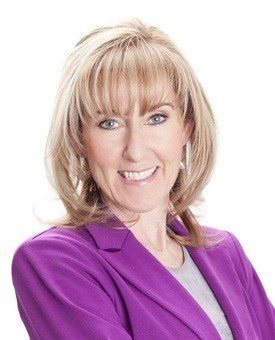If the country is to meet the National Development Plan's (NDP) target of creating 11 million jobs by 2030, then it needs to encourage entrepreneurship amongst women.
Last year, just 5.9% of adult women in South Africa were involved in starting a business, compared to 8% of men according to the Global Entrepreneurship Monitor (Gem). This represents a significant lost opportunity, for when a country does not achieve its full potential the economy suffers.
Entrepreneurship can serve as a critical driver of growth and job creation and help correct this imbalance. However, if we as a country are to make an impact we need to do more to support the small quotient of high-growth entrepreneurs that create disproportionately more jobs.
High-growth entrepreneurs
A 2013 report by Endeavor reveals that while firms growing at 20% or more per year represented only 13% of South African firms, they created a quarter of the country’s net new jobs during the previous three years. It means such firms are indispensable to the economy.
While men run many of these, there are signs that things are beginning to change. The Global Entrepreneurship Development Index’s 2015 Female Entrepreneurship Index, reveals that globally there has been a 7% increase in the percent of women entrepreneurs who intend to grow their business by 50% and employ 10 people within five years, which is significant.
However, worryingly the index reveals that women entrepreneurs’ innovativeness and participation in the technology sector has decreased. What this calls for is more acceleration programmes tailored for women entrepreneurs. With such programmes, women can get business support, mentoring and access to critical networks they need to grow their business. Elsewhere such programmes have had some success.
Women-powered accelerators

Donna Rachelson, Group CEO of Seed Engine
Take for example Springboard Enterprises, a US accelerator started by Kay Koplovitz in 1999 that helps boost high-growth technology firms led by women. Since inception, the accelerator has helped 674 women-owned businesses of which about 80% have raised $7.7 billion.
More recently, Enterprise Ireland’s Going for Growth initiative between 2008 and 2015 assisted over 400 high-growth women entrepreneurs to scale up their firms.
A survey of a recent cohort showed that in addition to a boost in confidence, ambition and motivation, 82% of participants saw an average increase of 30% in sales over the six months of the programme, bringing total sales of the group to over €51.5 million (R744m).
Participants were also able to grow their staff complement by 13%, while there was a 25% increase in the number of exporters among the group. Added to this, a report by a special committee in Ireland’s parliament in July 2015 found that the number of female-led enterprises is growing in Ireland and that the gap with male entrepreneurial start-ups is narrowing.
StartUp-Chile in June launched a sixth call for 20 to 30 women entrepreneurs to apply to the organisation’s four-month S Programme. Started in 2015, the S programme is funded by the Chilean government and aims to develop high-growth women-run tech start-ups from across the world. Each woman selected for the programme gets $15 000 in funding and a one-year visa. The first cohort included start-ups developing biomechanical devices, business expense management software, a restaurant delivery app and a smart heater among others.
At the end of the pre-acceleration process, participants will have the chance to apply to Start-Up Chile – the parent fund – that offers $35 000 and then eventually to the follow-on fund Scale that offers $100,000 in funding.
Local programme
Here at home, Seed Academy’s AccelerateHer programme aims to fast track the development of women entrepreneurs with three months of intense support – through workshops and mentoring from industry specialists and experienced entrepreneurs. The inaugural cohort, which was held between February and May, was sponsored by Shell Downstream SA and helped 25 black women-owned businesses (drawn from over 900 entries).
The programme was able to score a number of successes. Four of the women were able to pitch successfully to new clients; three increased their business’s turnover and expanded their client base; while one business secured a contract with a world-leading diamond company and a leading glass manufacturer. Another participant in the programme received a proposal request from a large local retailer.
The programme creates a pipeline for the WDB Seed Fund that provides funding to growth stage businesses with a particular focus on black women and youth-owned businesses. One participant was put forward to the fund.
Successful women
Geneva Kuypers of Geneva Projects & Supplies was awarded R50,000 towards her aspiring business sponsored by WDB Investment Holdings. The winner was joined by runners-up Lelo Rammitloa of Got Paper and Siphumelele Shabalala owner of Krypton Industrial Services, who each received R25,000 in funding from Shell to grow their businesses.
Rammitloa is just 26, but decided to leave her job in the claims department of a large health insurance company to start her own business. Today she runs Got Paper, a waste recycling business collecting waste from schools and businesses in Soweto. The idea to start the business came after she attended an expo by Johannesburg’s waste collection company Pickup that detailed the opportunities available in waste collection. Friends and family initially thought she was crazy when she decided to leave her job and start her business in January. While she was initially unsure, her confidence is growing as time goes by.
As a runner up on the programme, she was able to secure a vehicle from an international retail solutions company, which will help her to grow her business and employ the first one or two people.
The programme, she says, provided her with a lot of direction and advice on how to make her business sustainable. She says what is needed is more incubation programme for women and adds that she does not know of any woman who has secured funding from the government.
Improving economic, social welfare
Through their entrepreneurial activities, high-potential female entrepreneurs increase their own economic welfare, and improve the economic and social fabric of society through job creation, innovative products, processes, and services, and cross-border trade.
In addition, women are the backbone of society. When you empower women financially – their families and community benefit enormously.
What South Africa needs is more accelerator and support programmes that nurture and encourage high-growth entrepreneurship among women. Fewer high potential female entrepreneurs will result in fewer ideas being realised, less innovation, less export potential, and fewer jobs created.


































